Tariffs = Stock Market/Cryptocurrency Plunge, but Today is Far More Than That.
Author: Spicy Rich
Translated by: Deep Tide TechFlow
Why did the stock market and cryptocurrency plunge today? — Bitcoin, Dow Jones Index, S&P 500 Index, and Nasdaq Index all fell sharply.
The Worst Day Since April.
Here are the main reasons behind the current market pain.
Main Trigger Points
U.S. President Trump posted on the social platform Truth Social, mentioning the possibility of imposing "massive" new tariffs on goods from China.
At first, I thought this was all over.
We all know that tariffs = stock market/cryptocurrency plunge.
But unfortunately, this is not over.
Tariffs act like an additional tax on imported goods, making it more expensive for American consumers to purchase products.
Trump stated that these tariffs could be as high as 60%, and for certain goods, even up to 100%. He also mentioned the possibility of canceling a meeting with Chinese President Xi Jinping.
This news frightened investors, as it sounded like the beginning of another major trade war between the U.S. and China.
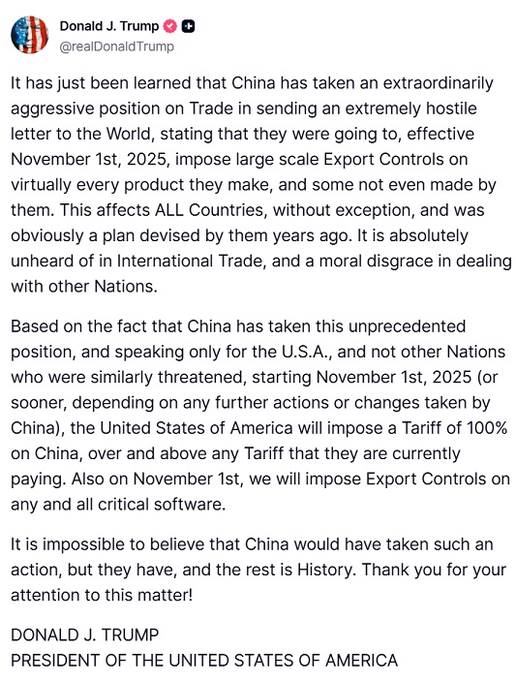
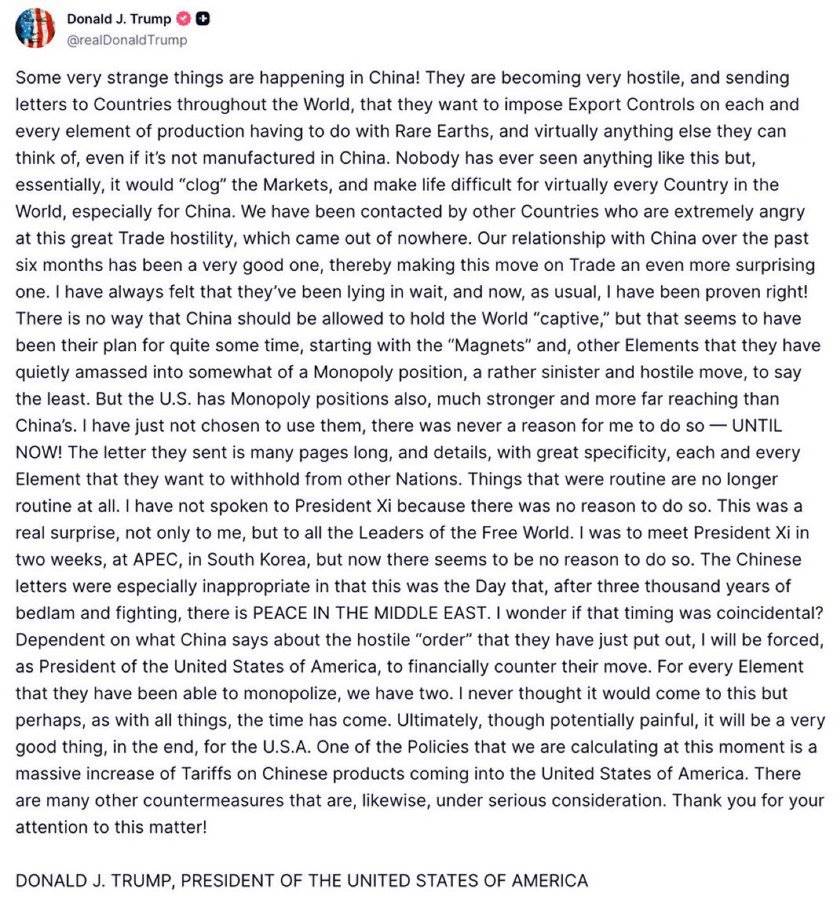
Why Did Trump Say This?
This is a response to actions taken by China.
China has introduced new regulations restricting the export of rare earth minerals—these minerals are crucial materials for manufacturing technology products (such as computer chips, electric vehicle batteries, and even weapons).
Additionally, starting October 14, China will impose fees on U.S. ships docking at its ports, launch an antitrust investigation against U.S. company Qualcomm, and halt purchases of U.S. soybeans.
These measures have raised concerns among U.S. companies about potential disruptions to their supply chains.
Many American tech companies rely on Chinese components to produce products like smartphones, computers, and electric vehicles.
If rare earth minerals become difficult to obtain, production will slow, costs will rise, and innovation will be hindered.
This has led investors to worry about future profits, prompting them to sell off stocks in these sectors.
Broader Economic Impact
Tariffs could trigger inflation—because companies will pass on the additional costs to consumers, leading to higher prices for goods.
If trade shrinks, companies may reduce hiring or investment, potentially slowing economic growth.
In the worst-case scenario, if the situation escalates, it could lead to an economic recession.
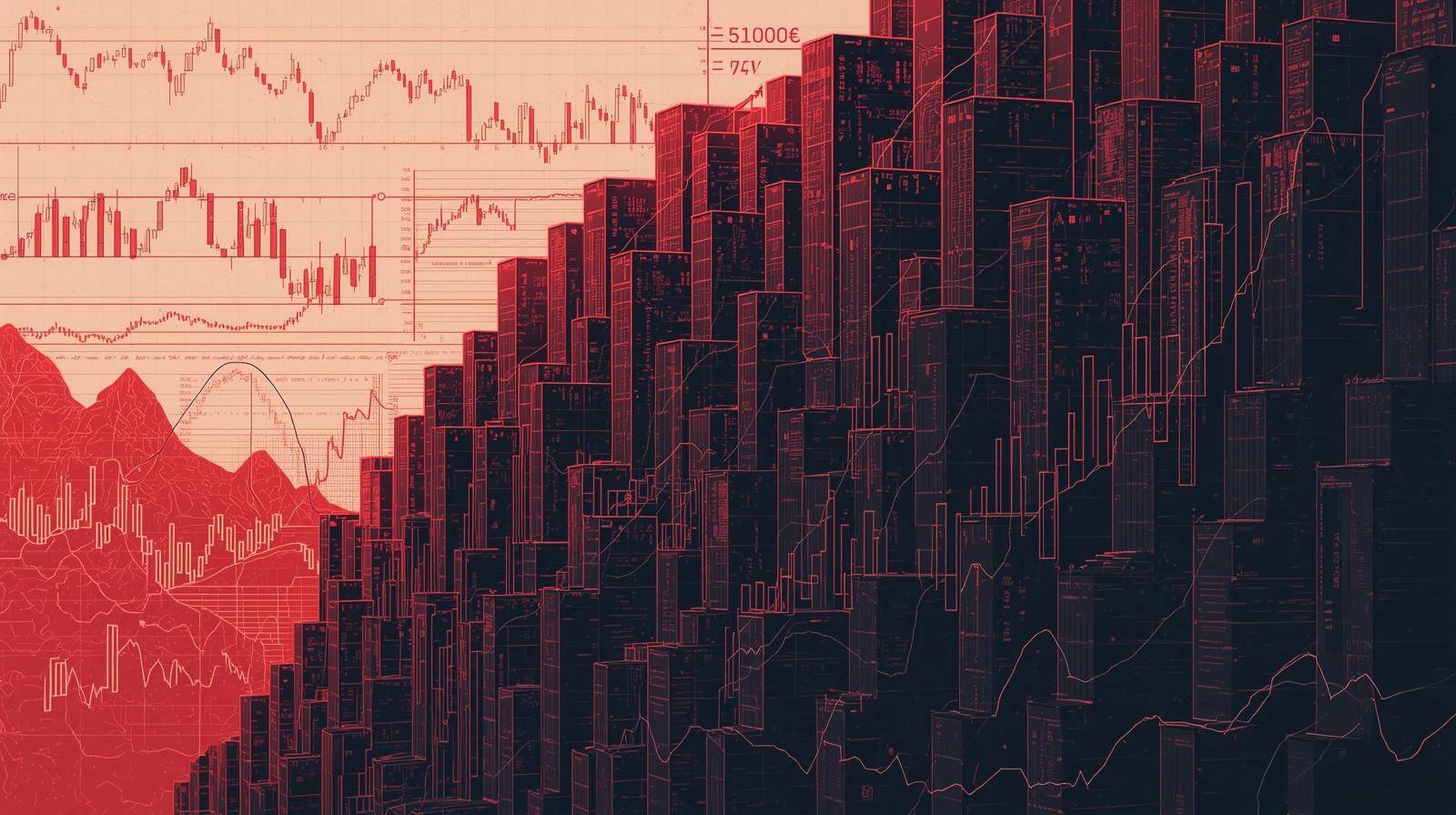
Another Contributing Factor
The U.S. government shutdown has entered its 10th day, adding to the uncertainty.
Without funding, essential services are forced to pause, and important economic data (such as employment reports) will be delayed.
This makes it difficult for investors and the Federal Reserve to make informed decisions, further exacerbating overall concerns.
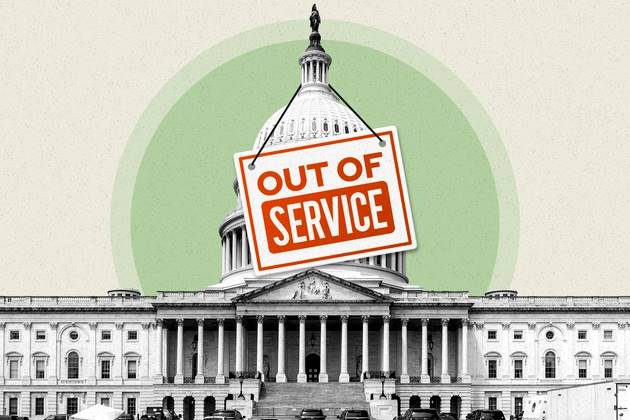
Why is This Drop Particularly Severe?
Trading mechanisms have played a role.
When bad news arrives, automated trading systems and large investors quickly begin to sell off.
This triggers "stop-loss orders"—automatic sell orders designed to limit losses—resulting in a chain reaction that amplifies the market's decline.
Short selling increases, algorithms trigger stop-loss orders, and options expirations further exacerbate the downward trend.
The concentrated holdings in tech stocks are rapidly unwinding—this is a typical momentum reversal that occurs after a market surge following an election.
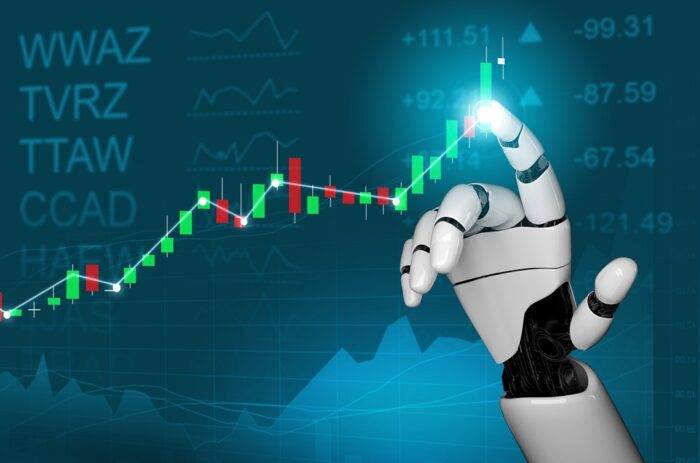
What Happens Next?
This could be a negotiation strategy before leader talks.
If the issues are resolved, the market may rebound.
But if tensions persist, the market is expected to remain volatile, rising costs will affect everyone, and pressure will be placed on global economic growth.
免责声明:本文章仅代表作者个人观点,不代表本平台的立场和观点。本文章仅供信息分享,不构成对任何人的任何投资建议。用户与作者之间的任何争议,与本平台无关。如网页中刊载的文章或图片涉及侵权,请提供相关的权利证明和身份证明发送邮件到support@aicoin.com,本平台相关工作人员将会进行核查。




